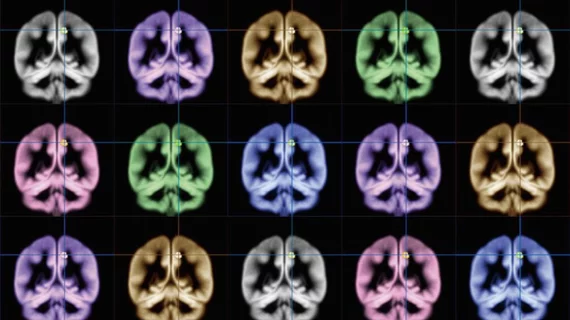fMRI reveals a lack of sleep increases sensitivity to pain
A team of U.S. researchers used fMRI to discover that a lack of sleep can increase the brain’s sensitivity to pain, according to a Jan. 28 study published in the journal JNeurosci.
Senior author Matthew Walker, with the University of California, Berkeley, and colleagues placed a pad on the legs of 25 healthy, well-rested adults until the temperature was unbearable, according to a Berkeley News release. On average, that topped out at 111 degrees Fahrenheit. But, after enduring a sleep-deprived night that average dropped to nearly 107 degrees.
After reviewing fMRI data, Walker and colleagues observed a decrease in activity in the nucleus accumbens and insular cortex, regions of the brain that regulate the body’s dopamine levels in response to pain.
“Sleep loss not only amplifies the pain-sensing regions in the brain, but blocks the natural analgesia centers, too," Walker said in the release.
The authors also analyzed the survey responses of more than 230 adults and found small shifts in a person’s sleep/wake pattern correlate with pain sensitivity changes.
"If poor sleep intensifies our sensitivity to pain, as this study demonstrates, then sleep must be placed much closer to the center of patient care, especially in hospital wards," Walker said.

